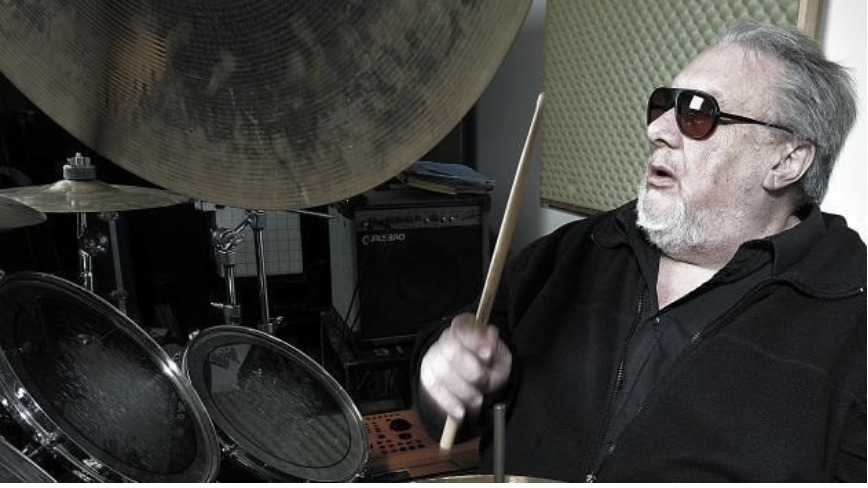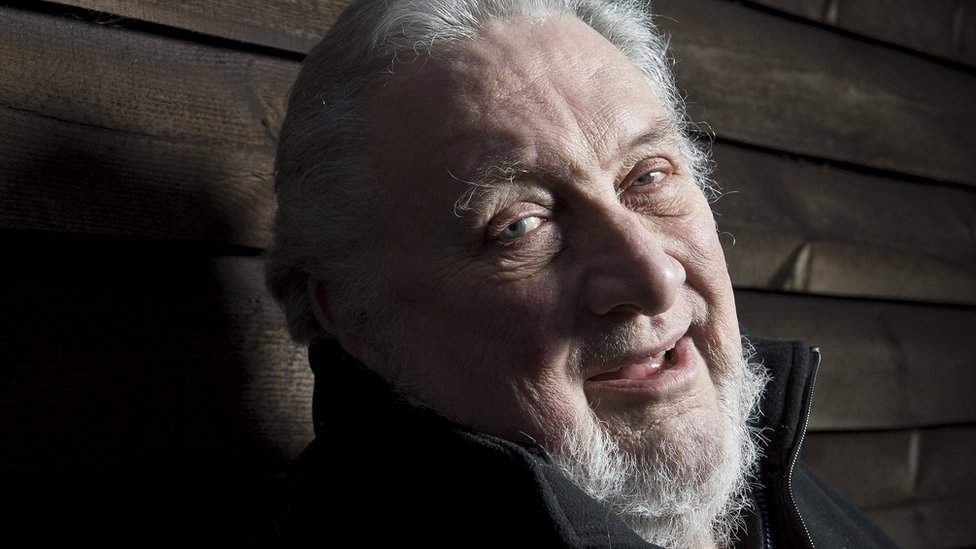
Jet Black, born Brian John Duffy on August 26, 1938, in Ilford, Essex, was a pivotal figure in the British punk rock scene. Best known as the drummer for The Stranglers, one of the most influential punk bands to emerge from the UK in the mid-1970s, Jet Black’s contribution to music went far beyond his drumming prowess. His unique playing style, business acumen, and determination were key factors in shaping the sound and success of The Stranglers, who became one of the most enduring and distinctive acts of the punk era.
Early Life and Background
Jet Black grew up in Ilford, a suburb of London, and like many musicians of his generation, he was influenced by the rock ‘n’ roll explosion of the 1950s and 1960s. Before he embarked on a professional music career, he had a somewhat unconventional background for a future punk rock icon.
He didn’t come from a typical working-class or musical background like many of his punk contemporaries. Instead, Jet Black had been an entrepreneur and business owner. In his early years, he owned several businesses, including a fleet of ice cream vans and a liquor store. His interest in music was always strong, but it wasn’t until he met the other members of The Stranglers that his musical career truly began to take off.
Jet Black was already in his thirties when he joined the band, a rarity in a movement dominated by young, angry musicians in their teens and twenties. This age difference meant that he brought a more mature and pragmatic perspective to the band. His business skills were vital for the group’s early survival and success. It was Jet Black who took on much of the management responsibilities in the early days, organizing gigs, managing finances, and ensuring that the band could focus on their music.
The Stranglers and the Punk Era
In 1974, Jet Black teamed up with Hugh Cornwell (vocals, guitar), Jean-Jacques Burnel (bass), and Dave Greenfield (keyboards) to form The Stranglers. The band’s initial style was somewhat different from the abrasive punk sound that would later become their trademark. They started as a more eclectic band, incorporating elements of rock, jazz, and progressive music into their performances. However, as punk rock exploded onto the scene in 1976 with bands like the Sex Pistols, The Clash, and The Damned leading the charge, The Stranglers adapted to the new musical landscape.
The Stranglers’ music, though associated with punk, always had a unique twist. They stood out from many of their contemporaries due to their musical proficiency and diverse influences. While most punk bands eschewed instrumental virtuosity in favor of raw energy and simplicity, The Stranglers embraced their musicianship.
Jet Black’s jazz background and technical drumming abilities allowed the band to incorporate complex rhythms and time signatures into their songs. His style was not the aggressive, fast-paced drumming typical of many punk drummers; instead, it was precise, controlled, and sometimes even minimalist, serving the song’s atmosphere rather than overpowering it.
.
.
Some of the band’s most iconic tracks, such as “Peaches,” “No More Heroes,” and “Golden Brown,” display Jet Black’s ability to shift between genres effortlessly. Whether it was the pounding rhythms of “No More Heroes” or the delicate, almost waltz-like tempo of “Golden Brown,” his versatility as a drummer was a cornerstone of The Stranglers’ sound.
The Rise of The Stranglers
The Stranglers quickly became a central figure in the UK punk scene, though their relationship with the movement was often ambivalent. While they shared the rebellious, anti-establishment attitude of their peers, The Stranglers were seen as outliers in many ways. Jet Black’s age, in particular, set him apart from the youth-driven punk ethos. However, this distance allowed the band to maintain a degree of independence from the scene’s self-imposed rules. They weren’t afraid to experiment with other genres like new wave, psychedelic rock, and even baroque pop, which is evident in songs like “Golden Brown” and “Always the Sun.”
In 1977, The Stranglers released their debut album, Rattus Norvegicus, which was an instant success and helped to cement their place in the burgeoning punk movement. Jet Black’s drumming was a crucial element in the album’s success, providing a solid foundation for the band’s aggressive yet melodic sound. The album was followed by No More Heroes later that year, and both records became defining statements of The Stranglers’ early period, showcasing their mix of punk energy and musical sophistication.
Jet Black’s steady, unflashy drumming style was often overlooked in favor of more flamboyant drummers from the era, but his contribution to The Stranglers’ sound was immeasurable. His tight, disciplined playing allowed the other members of the band the freedom to explore different musical ideas without the fear of losing the structure of the song. In many ways, Jet Black was the band’s anchor, both musically and practically.
Life Beyond Punk: The Stranglers’ Evolution
While many of their punk contemporaries faded from the scene by the early 1980s, The Stranglers continued to evolve. The band was not afraid to move beyond the boundaries of punk and embrace new styles, and Jet Black’s versatility as a drummer allowed them to do so without losing their core identity.
The 1981 album La Folie marked a turning point for the band, moving towards a more refined, experimental sound. The single “Golden Brown” from the album became one of the band’s biggest hits, reaching No. 2 on the UK Singles Chart in 1982. It was a departure from their earlier aggressive style, featuring a harpsichord and an intricate, off-beat rhythm that highlighted Jet Black’s ability to adapt to new musical directions.
As The Stranglers’ music became more complex and sophisticated, Jet Black’s role within the band continued to evolve. His drumming, always precise and controlled, became more subdued, serving the needs of the song rather than drawing attention to itself. By the time The Stranglers released Feline in 1983 and Aural Sculpture in 1984, the band had moved well beyond the punk rock label, incorporating elements of pop, jazz, and world music into their sound. Jet Black’s ability to adapt to these changing styles was a testament to his skill as a drummer and his openness to new ideas.
Health Issues and Departure
Jet Black’s dedication to The Stranglers never wavered, but as he got older, his health began to suffer. Throughout the 2000s, he experienced a series of health problems that increasingly limited his ability to tour and perform with the band. Despite these challenges, he remained committed to The Stranglers and continued to perform with them as much as possible.
.

.
In 2007, Jet Black’s health took a more serious turn, and he was forced to take a break from touring due to heart problems. Although he made occasional appearances with the band after that, it became clear that his days as a full-time touring musician were coming to an end. In 2015, after several years of reduced involvement with the band, Jet Black officially retired from performing live, though he remained a key part of The Stranglers‘ legacy.
Legacy and Influence
Jet Black’s impact on music, particularly within the punk and post-punk scenes, cannot be overstated. He was a drummer who defied categorization, bringing a level of musical sophistication to a genre that often prided itself on its simplicity. His ability to shift between genres and styles, while always maintaining a steady, unpretentious presence behind the drum kit, made him one of the most respected drummers of his generation.
Beyond his technical abilities, Jet Black’s contribution to The Stranglers’ success was also rooted in his business acumen and his work ethic. In many ways, he was the backbone of the band, not just musically but practically as well. His organizational skills, developed during his years as a businessman, helped to guide The Stranglers through the chaotic early years of their career and ensured that they remained a force in the music industry long after many of their peers had fallen by the wayside.
Jet Black died on December 6, 2022, at the age of 84, marking the end of an era for The Stranglers. His death was met with tributes from fans and fellow musicians alike, all of whom recognized the profound influence he had on the development of punk and post-punk music. Despite his relatively low public profile compared to some of his bandmates, Jet Black’s legacy as one of the most innovative and reliable drummers in rock history remains secure.
In the final analysis, Jet Black was far more than just the drummer for The Stranglers. He was a musician of rare skill and versatility, a shrewd businessman, and a driving force behind one of the most enduring bands to come out of the punk rock movement. His influence will continue to be felt for generations to come, as new musicians discover the music of The Stranglers and are inspired by the steady, disciplined rhythms of Jet Black.
Check out The Stranglers on Amazon.
If you found this interesting please share it with friends and family, and why not check out more of our articles on Musicians who Died in 2022.
.

